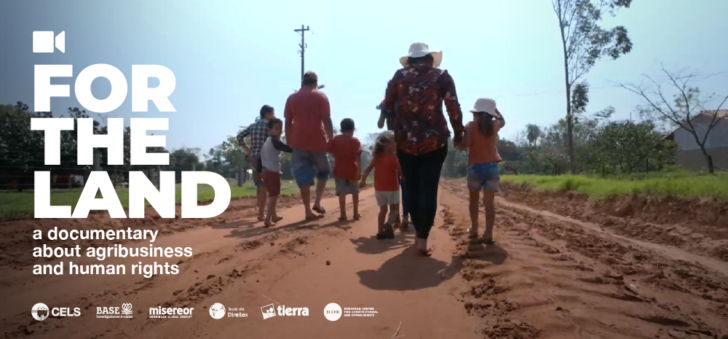On the day Sabrina lost her pregnancy, a neighbouring field had been sprayed. Doctors in Pergamino, in Buenos Aires province, quietly told her that she was intoxicated with glyphosate, but no one dared to sign the diagnosis.
In Colonia Yvype, 250 km from Asunción in Paraguay, there are no more schools. The State decided to close them ‘for lack of students’. The advance of monoculture expels people from the region, and those who decide to stay and fight for their land are criminalised.
In Bolivia, genetically modified soya occupies 50% of the cultivated land in Santa Cruz, at the expense of tropical and primary forests. Native animals, plants, and the whole environment is being degraded as agribusiness increases its production.
In Paraná, Brazil’s second largest soya-producing state, intensive use of pesticides has contaminated rivers and food. Gilberto lives in the Avá-Guarani village of Poha Renda. He says that every time they drink water they get headaches, vomiting, tummy aches and skin rashes.
Agribusiness and the use of pesticides are advancing in Latin America with States oscillating between weak regulation and complicity. The consequences fall on hundreds of communities whose rights to health, housing, food, land and a healthy environment are affected. For the land (Por la tierra) was born from their voices. It is a documentary series about these tensions in Argentina, Bolivia, Brazil and Paraguay. Throughout four episodes, it also shows stories of organization and resistance of communities to defend themselves.
Directed by filmmaker Irene Kuten, all episodes are based on a research carried out by the Centro de Estudios Legales y Sociales (Argentina), Terra de Direitos (Brazil), BASE-IS (Paraguay), Fundación TIERRA (Bolivia), Misereor and the European Center for Constitutional and Human Rights ECCHR (Germany).
For the land is available with English subtitles on Youtube.

